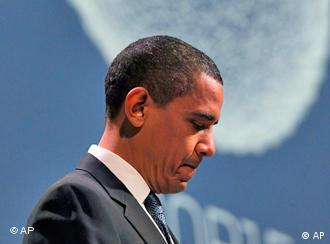 Thursday, July 26, 2012 – Lisa Friedman, E&E reporter
Thursday, July 26, 2012 – Lisa Friedman, E&E reporter
The Dominican Republic has “extensive” solar and wind resources and will be able to meet the government’s ambitious renewable energy goals, a new study has found. Yet the Caribbean nation’s road map — among the first of its kind — cautions that while the Dominican Republic has made important strides in weaning itself off fossil fuels and reducing its carbon footprint, it still needs stronger domestic policies and international funding to succeed.
“I think the Dominican Republic has to be credited. It’s a developing country, and it has really gone through the paradigm change that I wish so many other countries would have already gone through,” said Alexander Ochs, director of climate and energy at the Worldwatch Institute, which developed the study. “They have come a long way, and they have a long way to go,” Ochs said. But, he added, “I think the Dominican Republic can become a model country.”



 Welcome to the first edition of CONNECTED – a newsletter discussing climate and energy from a transatlantic perspective. With CONNECTED, partners adelphi and Worldwatch, headquartered in Berlin and Washington DC, will support the Transatlantic Climate Bridge, an initiative that since its inception in 2008 has promoted numerous activities by public authorities, the private sector, civil society, and academia in order to strengthen climate protection and energy security. CONNECTED aims to showcase and review policy and research initiatives that are aimed at low-emissions development. Opinion pieces, interviews, as well as reports on studies, dialogues and conferences will provide a regular update on the progress made toward building climate-compatible economies in Europe, the United States and beyond.
Welcome to the first edition of CONNECTED – a newsletter discussing climate and energy from a transatlantic perspective. With CONNECTED, partners adelphi and Worldwatch, headquartered in Berlin and Washington DC, will support the Transatlantic Climate Bridge, an initiative that since its inception in 2008 has promoted numerous activities by public authorities, the private sector, civil society, and academia in order to strengthen climate protection and energy security. CONNECTED aims to showcase and review policy and research initiatives that are aimed at low-emissions development. Opinion pieces, interviews, as well as reports on studies, dialogues and conferences will provide a regular update on the progress made toward building climate-compatible economies in Europe, the United States and beyond.
 Lange Zeit sah es so aus, als ob die Klima-Karawane aus Regierungsdelegationen, Interessenvertretern und Umweltschützern nur auf der Stelle tritt. Beim letzten großen Zusammenkommen auf höchster Ebene im vergangenen Dezember wie auch bei den unzähligen Vorbereitungstreffen ging es so zaghaft voran, dass viele den UN-Klimagipfel schon abgeschrieben hatten.
Lange Zeit sah es so aus, als ob die Klima-Karawane aus Regierungsdelegationen, Interessenvertretern und Umweltschützern nur auf der Stelle tritt. Beim letzten großen Zusammenkommen auf höchster Ebene im vergangenen Dezember wie auch bei den unzähligen Vorbereitungstreffen ging es so zaghaft voran, dass viele den UN-Klimagipfel schon abgeschrieben hatten.